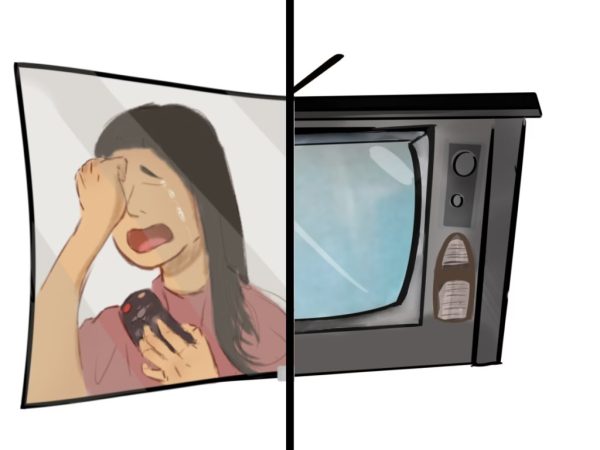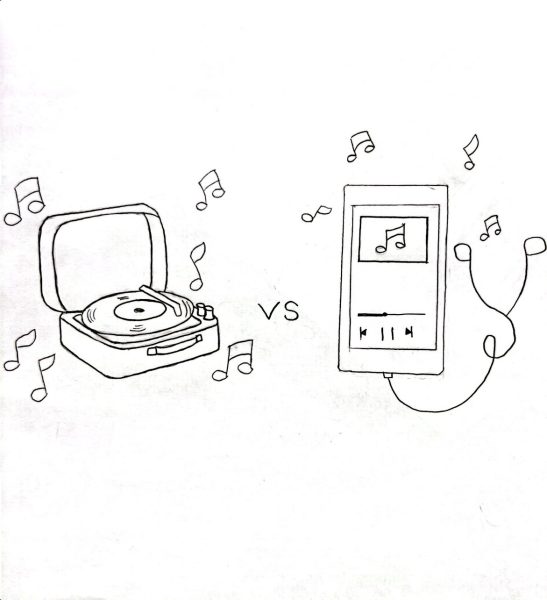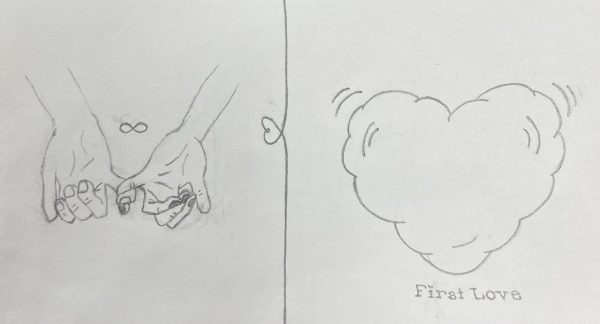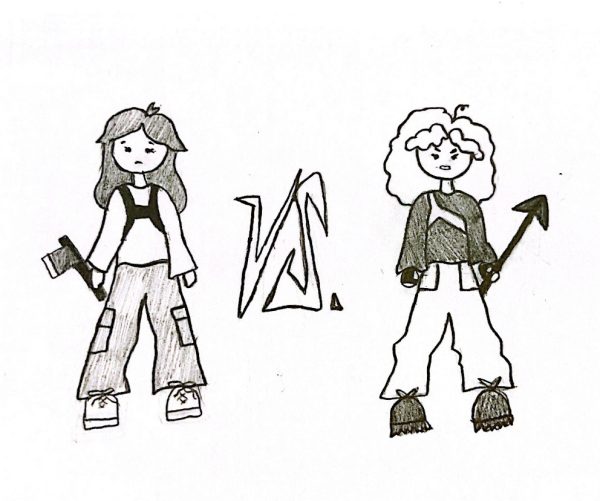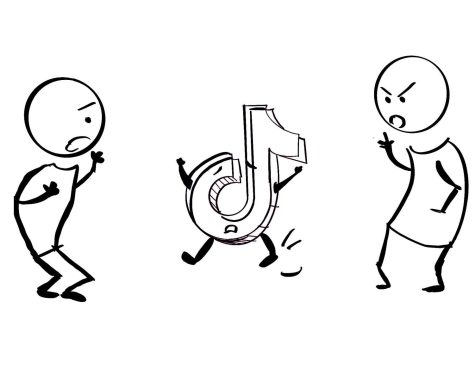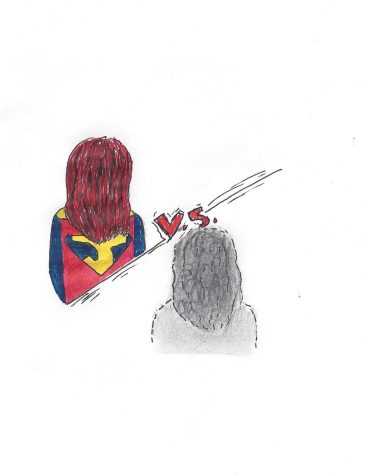Debate: Is Cancel Culture Necessary?
November 14, 2022
How Often Do We Truly Cancel People?
By Nathaniel Marroquin
Henry Ford is arguably one of the most influential Americans to date. His use of the assembly line technique of mass production made automobiles more affordable for the middle class and finally allowed for society to progress past the days of horseback travel. The Ford Motor Company, which he founded, is one of the biggest automobile companies in the world.
Yet one can not talk about Ford without mentioning his anti-semitism. His book The International Jew did not inspire Adolf Hitler to become anti-semitic, yet he still admired Ford directly to the point where Ford is the only American mentioned positvely in Mein Kampf, and in 1938, the German consul in Cleveland gave Ford the Grand Cross of the Golden Eagle, the highest medal Nazi Germany could give a foreigner.
Though Ford’s antisemitism and admiration by Hitler casts a black shadow upon his legacy, from a practical view, it really has not. Due to the success of his company, it could be argued that society has embraced Ford and all he stood for even with his antisemitism.
Cancel culture has become a phenomenon over social media in recent years. People look for old tweets or posts by people that were made when they were young in hopes of forcing some sort of apology from them or else they will have to be cancelled. Any post no matter how much one regrets making it, can be used against them.
Cancel culture is a controversial phenomenon but regardless of what you think about it, we should instead take a look at how effective cancel culture truly is.
How many “cancelled” famous people are still making tons of money every single day even as people on social media declare them to be cancelled.
Henry Ford died long before social media yet his antisemitism was controversial even then, and more so now but the company named after him was and still is successful because cancelling famous people often has little effect.
Travis Scott was given heavy criticism for the tragedy that happened at AstroWorld last year where 10 attendees were killed in a crowd crush. He came under fire for not taking any initiative and canceling the concert as ambulances were being called in yet despite all the criticism, his career has basically gone on as usual. He will probably still perform and will still make money as what happened has escaped from many peoples minds regardless of how much, very deserved, outrage came his way.
Like Henry Ford, Kanye West has come under pressure for antisemitic comments yet much more severly as the world has seen the horrors of what rampant antisemitism leads to. His partnerships with major companies like Adidas have been terminated which could be considered a cancellation and has even removed him from Forbes’ list of billionaires, yet as long as people listen to his music, he will still be famous and will probably stay rich.
Cancellations do have an effect but only to an extent. Ford’s antisemitism led to many boycotts of his cars and Kanyes comments have led to his partnerships being sold but these cancellations only last as long as people care, which they tend not to as the time after the controversy grows and grows.
People try to cancel popular figures and bring up what bad things they have done, but that should be done with the realization that people knowing these things is not enough and that using the outrage to get social media interaction will not achieve anything either.
Remember that the people you think you are trying to cancel have many avenues of income and will likely not be forced to make even an apology video by you using the controversy to get retweets.
At What Point Is Cancel Culture Acceptable?
By Palak Tohan
Cancel Culture—it is the phenomenon of “canceling” people due to what some may consider to be offensive or problematic ideologies. We all know of the concept and someone who has been canceled at least once for challenging some controversial action and is now being ostracized.
Our entire social media lives revolve around it, with it oftentimes being the spark of interests to talk about. Someone may say, “Did you hear what [so-and-so] said on their Instagram live last night?! That was unbelievable!”
But, at what point is it acceptable, and is it even effective? So many times in our world, people simply spark fires just to have something relevant to talk about, which may involve them. Honestly, people can’t stand to have a normal conversation, everyone gets offended by anything and everything, even if it has nothing to do with them directly.
The stigma around cancel culture is this—who gets to decide if one is to get canceled? Do you get to choose? Do I choose? Does Andrew Tate get to pick? It all comes down to morals, but not everyone’s morals line up. It’s a blurry section of the spectrum of when to cancel one.
Say anyone can simply cancel another person, should we then choose to live in fear? Anything you do, people get offended by. Should we fear that any one of our actions can cause others to look down on us? Of course, no one wants to be depicted as a person of demise, but is that what our world is coming to?
In specific situations, some people deserve to be canceled. This can be applied to the case of Travis Scott and his concerts. While he did not directly kill the people himself, is he to show liability to the 10 victims who died and several more injured victims at his Astroworld concert? He is partly to blame because he labeled his events as places where fans should “rage” and call on them to become “ragers.” His staff is also to blame for not taking precautions to control the crowd, and prevent the allowing of people to rush over to the stage tragically stomping and crushing the victims to death. Although Scott wasn’t part of the staff, he should’ve hired people who took their job more seriously, as more staff and authority could’ve somewhat lessened the severity of the tragic outcome. All in all, the rapper encouraged dangerous behavior with poor safety precautions and boundaries set in place, which ultimately led to the victims’ deaths.
With some more recent news, Kanye West stated anti-semitistic and hate speeches towards those of Jewish descent. This is an obvious case in which West is to get canceled in several ways. West is someone who supports concurrent protests, especially those related to race and equality. Why is he all of a sudden speaking out in racial ways to bring others down when he claims that he is a person of fair morals and values? Companies such as Adidas, Balenciaga, and GAP have recognized that this was not acceptable in any way and have decided to revoke their partnerships associated with West in efforts to ‘cancel’ him. After West spoke out about the matter, he revealed his motive wasn’t supposed to be in a negative manner. He meant it in a way to express how he wished ‘his people’ were more like Jews in their cultural normalities. Let’s give him the benefit of the doubt, he meant it in a positive lighted manner, however, word choice matters. He should’ve been more careful with the words he chose to use. The words he decided to use is even negatively impacting students that attend the Donda Academy. This school was shut down for the remainder of the 2022-23 school year because of the growing controversy regarding the founder’s words. What did these students do to get their education source stripped within seconds?
Okay, now we say both agree that someone should get canceled: to what degree should they be canceled? What should even be the degrees of being canceled? Is it categorized with a severity running from one to five, five being the most severe and one being the lowest severity. It is just so unclear to someone, especially to one who is foreign to matters relating to this idea.
The concept around cancel culture is understandable, yet it’s admissible for people, especially competitors, to want to take advantage of someone’s mistakes that are deemed as morally “wrong” and use it to their advantage. It’s natural, being part of the notable social Darwinism theory—survival of the fittest. However, to what extent are we canceling them? Do we simply disregard the person’s life worth hard work and throw them out the window because of one morally wrong action? In retrospect, is the person who was canceled allowed an opportunity to grow and change as a person?
In some instances it is highly effective and widely accepted. In cases where the justice system fails us, the cancel culture allows marginalized people to seek and be held for accountability.
An example where this was displayed was within the Black Lives Matter, BLM, movement in 2020, being ignited on a widespread scale by the incident revolving around George Floyd’s killing. On a mainstream level, people of minorities are due social equality and justice. However, if a company or a celebrity doesn’t show their support to a specific movement, does that mean we should cancel them? Can showing interest in such movements be a direct write off to claim yourself as a black-supporting business? It is just overall complicated as you can never tell someone’s real intentions behind an action.
Although cancel culture is a toxic trend, it can also be exploited for the benefit of whoever wishes to do so as we hoot at anyone and everyone for their actions.

